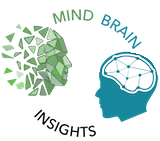The following essays serve as white papers. Their main purpose is to enable a more complete understanding of the mind-to-brain mapping method developed by Mind Brain Insights, LLC.
Essays

Essays Available on Request

Group 1
Protected: Empowering the BCI User
A BCI user is empowered by a BCI device whenever it improves their quality of life in some way. But how else might the user be empowered? I argue there are a number of ways that center around the user’s mind. The user’s mind includes an intention or mental command within a larger context of mind (perception, thought, emotion, executive control, goals, imagination, inner speech…) and context (environment, situation, recent performance…)…
Protected: Beyond Task-Based, to Mind-Based Neuroimaging
Task-based functional neuroimaging has been a highly effective tool for advancing neuroscience, cognitive neuroscience and brain science generally. It’s generated a vast amount of valuable experimental data. And it continues to illuminate not only on how brains function in relation to tasks, but the mental states and processes which these tasks presumably elicit…
Protected: Re-thinking the Mind
The subjective mind is not taken very seriously by brain science. It often views mental states, at least their immaterial aspect (perception, thought, feeling, meaning…), as a kind of pseudo-phenomenon. Consciousness is even said to be an illusion or hallucination; or an epiphenomenon (having no affect on the physical brain).
There are actually good reasons for this. First, no one knows what the mind is. No precise, agreed upon definition of it exists (Poldrack & Yarkoni, 2016)…
Group 2
Protected: Brain Signal Decoding and Classification
Password Protected
To view this protected post, enter the password below:
Protected: How are General Memories Formed?
Password Protected
To view this protected post, enter the password below:
Protected: What’s a General Memory?
Password Protected
To view this protected post, enter the password below:
Protected: Does Memory Have Content?
Password Protected
To view this protected post, enter the password below:
Group 3
Protected: The MA Model: A Second Summary
Password Protected
To view this protected post, enter the password below:
Protected: BCI Brain Signal Classifiers: Part IV
Password Protected
To view this protected post, enter the password below:
Protected: BCI Brain Signal Classifiers: Part III
Password Protected
To view this protected post, enter the password below:
Protected: BCI Brain Signal Classifiers: Part II
Password Protected
To view this protected post, enter the password below:
Protected: Is Experience Copied to Memory?
Password Protected
To view this protected post, enter the password below:
Group 4
Protected: Mind-based Classifiers for BCI
Password Protected
To view this protected post, enter the password below:
